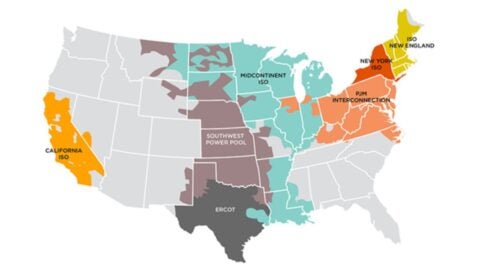Global Warming White Paper is a Serious Step Forward
This post is by John Mimikakis, Senior Policy Manager at Environmental Defense.
Climate Vote 2007
 Part of a series on the work of the Environmental Defense Action Fund to enact an effective climate law. You can help by writing to Congress.
Part of a series on the work of the Environmental Defense Action Fund to enact an effective climate law. You can help by writing to Congress.Congressmen John Dingell (D-MI) and Rick Boucher (D-VA) aren’t the most likely global warming allies. Until this year, Dingell was a staunch critic of efforts to curb global warming. And Boucher, hailing as he does from coal country, would seem more likely to play the role of climate skeptic than evangelist.
And yet, these two representatives appear to be leading House efforts to draft legislation that would, for the first time, place hard limits on America’s global warming pollution.
How can we trust that their efforts will actually produce a climate law rather than undermine it? In fact, it’s their conservative reputation that makes it all the more likely they will succeed. If anyone can win the support of conservative Democrats and skeptical Republicans for global warming legislation, they can.
But what kind of bill will they produce? Last week the two gave us a peek at what they have in mind when they released a 22-page paper entitled, “Scope of a Cap-and-Trade Program.” Here are some highlights:
Dingell and Boucher say they will draft an “economy-wide, mandatory greenhouse reduction” bill. The central component of the bill will be a cap and trade program – modeled after the highly successful Acid Rain Program that Congress created in the 1990s – with increasingly stringent caps that eventually reduce emissions by 60 to 80 percent by 2050.
The two members “start with a strong presumption” that all emissions from all sectors of the economy should be covered by the cap-and-trade program. But they suggest it may not be feasible to cover some emissions from some sectors – either because accurately measuring such emissions in the first place cannot yet be done, or because the sheer number of sources would make covering them under a cap and trade program administratively difficult.
They say emissions from agricultural operations may be an example of a sector that simply cannot be regulated under a cap and trade program. Those emissions might provide offsets opportunities, which the two representatives plan to write about in a future white paper.
Dingell and Boucher also say that while a cap and trade program will be the centerpiece of their comprehensive climate bill, they will consider some “complementary measures” to reduce emissions where the reach of a cap and trade program alone may be limited.
For example, Dingell and Boucher say they may consider including in comprehensive legislation a range of additional policies such as energy efficiency standards for home appliances and mandates or incentives for the use of low-carbon technologies.
The fact that Reps. Dingell and Boucher are talking at all about trying to solve global warming represents tremendous progress in the House of Representatives compared to previous Congresses. The release of their thoughtful and serious white paper last week is another significant step forward.
But we have a long way yet to go.
Now Dingell and Boucher must translate their work into legislation, introduce a strong bill, and begin moving it through their committee. We don’t have much time left to wait.












